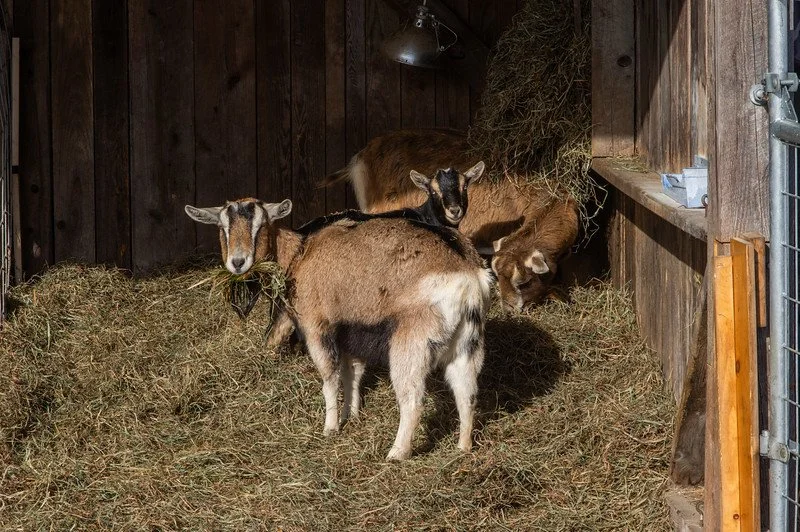7th Week of the Fall CSA Season: Week of December 11th
This week we had some college friends visiting who run a veggie CSA out in Illinois… it was nice to get to talk farming and see their little kids just as fluent in obscure veggies and wash station protocols… photo by Adam Ford
This Week’s Availability
This week we will have:
Greens: baby lettuce, spinach, green curly kale, lacinato kale bunches, bok choi, green cabbage, mesclun mix, mini head lettuce, and claytonia*
Roots: carrots, yellow potatoes, rutabaga, red beets, chioggia beets, watermelon radish, daikon radish, and Gilfeather turnip
Alliums: onions, garlic, shallots, and leeks
Fruiting Crops: delicata squash
Herbs and Miscellaneous: Painted Mountain corn
*What is claytonia? Great question! Some folks call it “miner’s lettuce,” and it is a tender, small, smooth green leaf with leggy, crunchy stems. It’s great in salads, and also on sandwiches and wraps. Our kids just eat it plain in handfuls with as much vigor as a potato chip session. (Which is inspiring, but they are more advanced than me… I am not as eager to have it plain, ha!) I am normally not someone who likes the stems of greens, but I really like the textural addition of these delicious succulent stems within the mix of the greens. If claytonia is new to you, and you enjoy greens, I encourage you to give it a shot at some point.
head lettuce, photo by Adam Ford
Farm News
December is when we try to get all our seeds and supplies ordered for the following year. Some seed companies and supply companies offer big discounts this time of year, so it’s nice to try to get that ordering done before the end of the year. A farm our size spends about $7,000 on seeds annually (wow!!) on well over 100 different varieties of 40 or 50 crops, so it’s a big project to create those orders. It takes Ryan several days going through and inventorying our seeds bins, modifying spread sheets, and reading through various seed catalogues to create the orders. Seed ordering for certified organic operations also has the additional step of recording each step of ordering: For seeds that are certified organic, we still have to create a paper trail to document the integrity of the organic chain, a new rule implemented last year intended to address the integrity of organic standards in corporate organics, but also applies to small producers in a somewhat humorous and somewhat superfluous way. And for the few seed varieties that we can’t find as certified organic, we have to create a more robust set of records that includes our attempts to find those varieties from at least 3 organic sources, and paper verification that the production of those non-certified seeds are not produced with prohibited substances. The work is worth it to feel really good about our production methods, but it means we spend a hilarious amount of time behind a computer to order seeds. (It makes me feel pretty separate from the the farmers of the past!) And that is just one December computer task of several.
It’s nice to pop in and out of the root cellar these days to see the stacks of wrapped veggies safely stored for the winter. Despite doing this for several years, it still impresses me the volume of food that comes out of the ground, into the root cellar, and eventually into several outlets in the community. Though I think the work of this particular winter is to find wholesale buyers who want Gilfeather turnips 3 times the size of my head, ha! (Should have been carving Gilfeather turnips instead of pumpkins for Halloween this year!)
Have a great week,
-ESF Team: Ryan, Kara, Taylor, Galen, Cindy, Katie, K2, Leah, and Natalie (and Sky and Soraya)
This is a recipe from the archives… it’s a fun snack, and is an especially fun for folks who don’t normally like beets.
claytonia before harvest, photo by Adam Ford
cilantro bunches, photo by Adam Ford
uncovering greens, photo by Adam Ford
field in the snow, photo by Adam Ford
time to switch to the sled, photo by Adam Ford
sledding hill behind the barn, photo by Adam Ford
flower garden entrance, photo by Adam Ford
tunnel hunting, photo by Adam Ford
cleaning up leeks, photo by Adam Ford
red head lettuce, photo by Adam Ford
cut baby lettuce, photo by Adam Ford
green cover crops poking through, photo by Adam Ford
fall covered in snow, photo by Adam Ford
empty bird feeder, photo by Adam Ford
happy goats, photo by Adam Ford

















